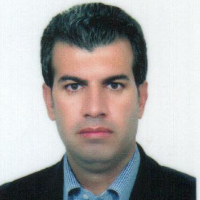Cultural and Literary Face of Iran in the Works of Khaled Hosseini
Author(s):
Article Type:
Research/Original Article (دارای رتبه معتبر)
Abstract:
Image studies is one of the new fields of comparative literature in which the researcher examines the culture and literature of a land in the works of a writer of a period or school. Khaled Hosseini is one of the famous contemporary writers of Afghanestan, who has more or less displayed the cultural elements of Iran in his works. The present research is carried out in the field of comparative literature under the theory of imagery with the help of library study and descriptive-analytical method. How these influences appeared in Iranian characters and cities in the two novels Kite Runner and Thousand Shining Suns are the issues investigated in this essay. The findings of the research show that the source and foundation of many of the author's thoughts are rooted in Iranian culture and literature. In his works, he has been influenced by Iranian culture and literature, and he has illustrated his ideas with the help of these elements. Hosseini has benefited from the art and literary approaches of poets such as Hafez, Movlana, Jami, Nezami, Foroogh Farrokhzad and Khajeh Abdollah Ansari, and among the cities of Iran, he also mentions Tehran, Mashhad and Isfahan frequently. The issue of immigration to Iran, Iranian cinema, the Iranian car Peykan, the Shiite structure of the social fabric of the Iranian people, Iranian proverbs, and the customs of the Iranian people are among the other issues that are mentioned in the text of the two novels Kite Runner and Thousand Shining Suns.
Keywords:
Language:
Persian
Published:
Research in Narrative Literature, Volume:11 Issue: 3, 2022
Pages:
141 to 168
https://magiran.com/p2498682
مقالات دیگری از این نویسنده (گان)
-
Fundamental Confrontations of Fictional Characters in Jahangir Nameh
Elham Ebrahimi, Amirabbas Azizifar *
Research in Narrative Literature, -
Analysis of the Story Collection "Majid’s Tales" by Houshang Moradi Kermani Basedon the P4C Educational Program
Yaser Safari Sechghaei *, Abdolreza Naderifar, Amirabbas Azizifar
,



